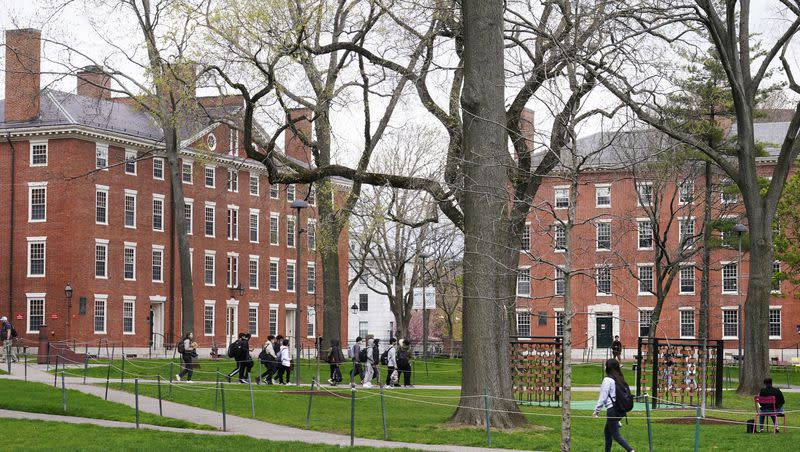Education Department opens investigation into Harvard’s legacy admissions. Here’s what you need to know

The U.S. Department of Education has opened a civil rights investigation into Harvard University’s policies on legacy admissions.
The use of legacy admissions — the practice of giving preferential treatment to family of alumni — is under scrutiny because the practice discriminates on the basis of race because it largely benefits white applicants, a complaint filed by Lawyers for Civil Rights earlier this month alleges.
The complaint filed on behalf of three advocacy groups — the Chica Project, the African Community Economic Development of New England, and the Greater Boston Latino Network — argues that “Donor and Legacy Preferences disproportionately advantage white applicants.”
The inquiry comes less than a month after the Supreme Court struck down the use of affirmative action in college admissions.
Does Harvard’s legacy admissions discriminate based on race?
In a letter, the Office of Civil Rights confirmed that it was investigating “whether the University discriminates on the basis of race by using donor and legacy preferences in its undergraduate admissions process in violation of Title VI and its implementing regulations.”
According to The New York Times’ analysis of court papers, less than 5% of applicants to Harvard are recruited athletes, legacies, relatives of donors and children of faculty and staff. However, this group makes up about 30% of those admitted every year, with about 70% of those applicants being white.
This means that legacy applicants — the majority of whom are white — are nearly six times more likely to get in.
“The preferential treatment is conferred without regard to the applicant’s credentials or merits — the benefit is derived simply from being born into a particular family,” Lawyers for Civil Rights argues.
How did Harvard respond to the investigation?
A spokesperson for Harvard responded to the news of the investigation Tuesday by stating that the university has already been reviewing its admissions process to “ensure compliance with the law since the Supreme Court ruling on affirmative action,” The Associated Press reported.
Related
“As this work continues, and moving forward, Harvard remains dedicated to opening doors to opportunity and to redoubling our efforts to encourage students from many different backgrounds to apply for admission,” the spokesperson stated.

